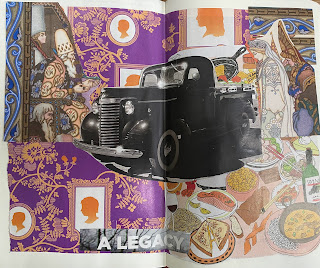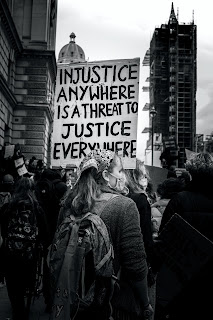Teaching expressive arts therapy in India
 Greetings from South India!
In the late spring of 2014, I was approached by Magdalene Jeyarathnam about
teaching expressive arts therapy and music therapy in Chennai, India. JennieKristel, an alumnus of our Expressive Therapy program, had been teaching visual
art, playback theater and expressive arts therapy and recommended the
possibility of a collaboration with Lesley University.
Greetings from South India!
In the late spring of 2014, I was approached by Magdalene Jeyarathnam about
teaching expressive arts therapy and music therapy in Chennai, India. JennieKristel, an alumnus of our Expressive Therapy program, had been teaching visual
art, playback theater and expressive arts therapy and recommended the
possibility of a collaboration with Lesley University.
The following spring during my sabbatical year, I came to
Chennai to teach and I also participated in a two-day workshop in Bangalore
(giving me a chance to meet my lovely friends whom I met during a joint
adventure in Ghana. Belinda Rego andChandlini Hartlalka were gracious hosts in Bangalore and made my first trip to India a
pleasure!
This project began as an invitation to develop a possible
collaboration between Lesley University’s Expressive Arts Therapy
specialization and a post-graduate certificate offered through the Women’sChristian College (WCC) of Chennai and East-West Center for Counselling &Training. Teaching in Chennai has
deepened my experience in cross-cultural expressive arts teaching and learning.
The invitation to teach expressive arts and music as therapeutic approaches through the post-graduate certificate offered by the Women’s Christian College(WCC) of Chennai and East-West Center for Counselling & Training has led to a strengthening of my commitment to international educational collaboration. I have returned to teach for two weeks each spring since 2015 – in addition to my workload commitments at Lesley – with the hopes of transforming this project into a more formal partnership between WCC, East-West Counselling, and Lesley University.
There are many students in India who would like to study at
Lesley, and in fact this year we have three students from India in our master’s
expressive arts therapy program and one in our dance therapy program. I believe is has been my work there, in part, that has
increased interest in our program in India.
A more formal partnership, however, takes significant
coordination. Although we have had some preliminary meetings (during my second
year of this project the GSASS deans, the president of WCC, our associate
provost and several faculty did meet, but no agreement was finalized), sadly
our transitions within GSASS and my workload as specialization coordinator have
prevented sustained and continued work on this project. (GSASS has had three deans since I began
teaching in India). We continued to hope
that a formal agreement might be possible, and with that hope I have returned
again to teach in Chennai.



Comments